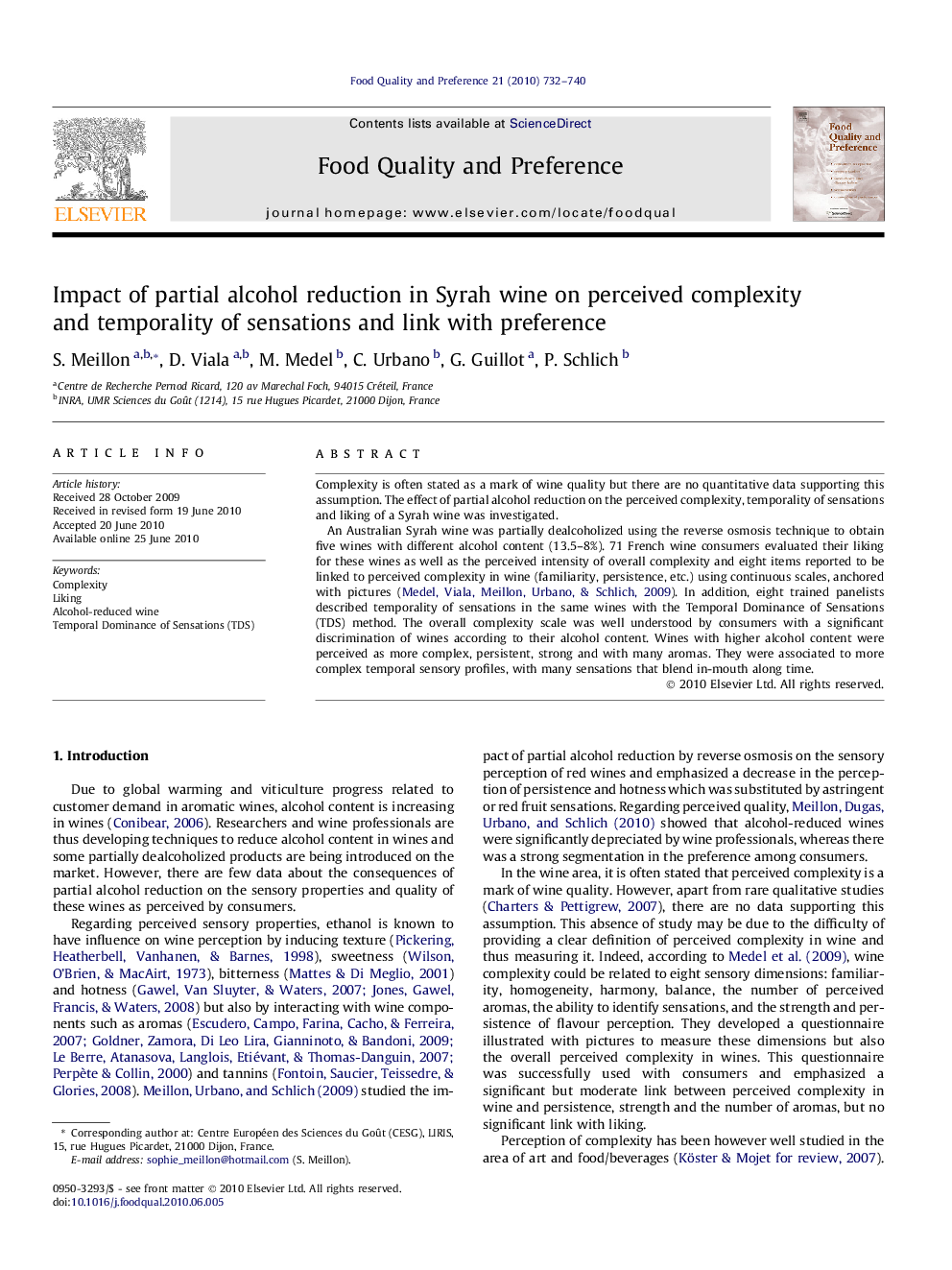| Article ID | Journal | Published Year | Pages | File Type |
|---|---|---|---|---|
| 4317688 | Food Quality and Preference | 2010 | 9 Pages |
Complexity is often stated as a mark of wine quality but there are no quantitative data supporting this assumption. The effect of partial alcohol reduction on the perceived complexity, temporality of sensations and liking of a Syrah wine was investigated.An Australian Syrah wine was partially dealcoholized using the reverse osmosis technique to obtain five wines with different alcohol content (13.5–8%). 71 French wine consumers evaluated their liking for these wines as well as the perceived intensity of overall complexity and eight items reported to be linked to perceived complexity in wine (familiarity, persistence, etc.) using continuous scales, anchored with pictures (Medel, Viala, Meillon, Urbano, & Schlich, 2009). In addition, eight trained panelists described temporality of sensations in the same wines with the Temporal Dominance of Sensations (TDS) method. The overall complexity scale was well understood by consumers with a significant discrimination of wines according to their alcohol content. Wines with higher alcohol content were perceived as more complex, persistent, strong and with many aromas. They were associated to more complex temporal sensory profiles, with many sensations that blend in-mouth along time.
